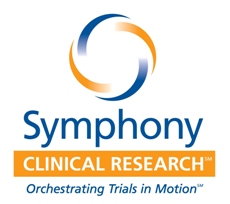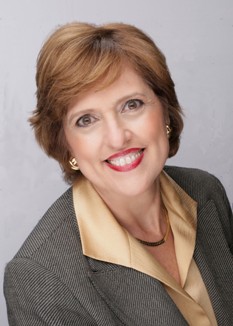|
Symphony Clinical Research℠ (Private) |
||
|
September 3, 2012 Issue |
||
|
The Most Powerful Name In Corporate News and Information |
||
CURRENT ISSUE | COVER ARCHIVES | INDEX | CONTACT | FINANCIALS | SERVICES | HOME PAGE |
||
|
Symphony Clinical Research℠ is helping Clinical Trial Sponsors Solve Enrollment and Retention Issues, which Increases Investigator Satisfaction while Lowering Costs |
||
|
Symphony Clinical Research℠
(formerly known as Clinical Resource Network, LLC) is the global service
leader in providing in-home and alternate-site clinical services to patients
in all phases of clinical trials. Since 2003, Symphony’s combined experience
in clinical research, project management, nursing and homecare has delivered
a superior experience for sponsors, sites and patients. By taking some trial
visits to patients in their homes, we make it convenient for patients to
participate in clinical trials. Symphony’s services significantly accelerate
the pace of clinical trials by leveraging our extensive network of
clinicians to increase convenience for patients. Symphony helps clinical
trial sponsors dramatically improve patient recruitment, compliance and
retention as well as increase patient and investigator satisfaction. In-home
services can be used in all therapeutic areas, and patient populations from
pediatrics through geriatrics. Symphony complies with ICH/GCP, IATA, privacy
rules and other applicable regulations.
Nicki has significant P&L
and general management experience. She has a proven record of business
growth, turnarounds, operational process improvements, sales and margin
gains, and executive team development. She has repeatedly demonstrated her
ability to rally an organization to achieve extraordinary results. She has
led three organizations: a high growth multiple site dialysis services
organization, a highly regulated, large blood services organization, and a
major “gold standard” professional society that also had a very significant
laboratory quality improvement business and laboratory accreditation
program. Early in her career, Nicki spent almost twenty years with Baxter
Healthcare Corporation, where she was able to develop her experience in
almost every key functional area: strategy, planning, finance, operations,
marketing, sales management, process improvement, change management and R&D.
Her experience spans manufacturing, distribution provider healthcare and
clinical research organizations.
The University of Illinois
at Urbana-Champaign granted Nicki a BS in Finance and an MBA. She later sat
for and passed the CPA exam. Nicki has resided in the Deerfield, Illinois area with her husband for more than thirty years. |
|
|
|
Interview conducted by: Lynn Fosse, Senior Editor, CEOCFO Magazine, Published – September 3, 2012
Ms. Norris: It was one of those things that was a journey, not a destination. We embarked upon redefining this company three years ago, and rebuilt all of our processes and systems. We dedicated ourselves to providing quality service in compliance with good clinical practices. We have dramatically improved how we are doing things and the results we’re getting. We got to a point where we felt we had reached completion and it was time for a new name to memorialize that redefinition. We decided that Symphony Clinical Research℠, Orchestrating Trials in Motion℠, represented the quality we provide and the way we provide our services. Like an orchestra, we bring together “virtuoso’s” or experts in various different areas to coordinate seamlessly within an overall clinical research study and produce an outcome that is more effective than each of the individual parts. So, we decided to change our name as the final stage of redefinition, to our new more representative and descriptive name.
Ms. Norris: It was not necessarily a change in focus; it was doing things better. I think often little companies start out, their processes are not really mature, and the metrics for ensuring that the processes are working as desired are not everything they can be. We set out to really make this a quality performance company and we were able to do that.
Ms. Norris: Yes, working with people at home within a clinical trial is very unique; it is an innovative solution. This is an industry that is heavily regulated and so people are very committed to making sure that whatever they do in their clinical research will be acceptable to the FDA and other regulatory agencies. I would say, relative to other industries, this particular niche in the industry is slower to take action, due to those regulatory concerns. That being said, the industry is facing some problems that they have not been able to overcome; in particular, enrollment and retention issues. These problems cause them to spend, on average, more than a billion dollars and more than ten years to get a drug on the market. The industry is trying many different solutions: outsourcing to CROs; using healthcare databases to identify patients more readily; using social media to identify patients; and this is another one of those concepts that should provide a solid feasible solution for these major issues.
Ms. Norris: I would say that the biggest challenge is attention to detail. What we have to do is understand clinical research, home care, nursing, and project management. We have to combine all those skill sets and then really study a protocol to anticipate where the risks are and put strategies in place that can mitigate those issues.
Ms. Norris: When our nurses go into the home, they typically have a kit that is usually prepared by a lab ahead of time and it is used at the clinical research site to draw samples from the patient. We receive that same kit. However, before we take that into the home, we try to anticipate what can go wrong. In the home, the nurse does not have the same access to supplies that he or she would have at the research site. Therefore, if we think that they could use an extra needle or two or that they might need some cotton pads or perhaps an extra balance tube or a couple of extra vacuum tubes, we add those supplies. The last thing that we want is that they lose the samples from the visit because of the supply shortage or a supply malfunction. We try to anticipate those issues based on our expertise and take steps to make sure that the samples are collected successfully the first time.
Ms. Norris: When you start thinking about clinical research, you start thinking about someone who is very data-oriented with high attention to detail. We certainly need that because ultimately we need to make ensure the protocol requirements are met to the letter. However, when you start talking about a real live patient, you need very high interpersonal and customer care skills, usually found more on the nursing side of things. We need to bring those all together with our corporate staff, where we need project managers who understand how the process works and where the proper checks in this process are to make sure that things happen where, how and when they are supposed to.
Ms. Norris: We work in about fourteen countries right now. We provide our service, certainly in the US and Canada, but also many countries in Western Europe, some Eastern Europe, Israel and Australia. We are always open to working in new countries, as long as we can maintain the highest standards of care.
Ms. Norris: That is the billion dollar question. Over and over again we have customers tell us that they wish they knew the service existed. We speak at conferences, write papers, advertise and it seems, do everything to get the word out there. But, still, this is one of those things that people have not necessarily heard about. Typically, what happens is a major pharma company or CRO has a study that has a patient population, which for one reason or another, is immobile. They have rheumatoid arthritis, they are burn patients, transplant patients, mothers with little kids where the kid has to go to school or they have other children, or they are dementia patients who get disoriented when they leave familiar surroundings, they need to drive into the city, and they are just not able to do that. You find that one of these companies has a research study and they are just having a terrible time with, so they come to us for what we call a “rescue” study. We come in and provide our services and they find out that by making it convenient, things go much smoother. Then that clinical team tends to use our services going forward because they know this works for a given population. Then, that therapeutic area clinical operations team will talk or move on to another therapeutic area. They will take the knowledge of our services with them; and they will see somewhere else our services make sense and word will spread that way.
Ms. Norris: Things are going well. As you know, the population is aging and the need for drugs is everywhere. We are very tiny in the overall research world, so there is extensive room for growth. People are opening their eyes when they have a real problem, and they are seeing us an innovative way to meet that need and solve those problems.
CEOCFO: Back in April, you added to your business development team. Are you still adding or is your team basically in place? Ms. Norris: Actually, we have one more position that we are trying to fill and we are continuing to search for the proper west coast candidate.
Ms. Norris:
People should pay attention because most of us and our families take drugs.
We need to make sure that those drugs are safe before they get into the
overall population; clinical research is how you do that. An effective
clinical trial tests the drug on a population that is similar to the
populations that will ultimately be using that drug. Therefore, it behooves
all of us to make sure that people are participating in clinical trials and
that the test patient population is similar to the actual population where
the drug will be used, so there are no surprises. Doing all of this is
difficult if you do not have a population willing to participate in clinical
trials; that is what we are experiencing today. By including in-home
clinical services in your trial, you can make it easier for someone to
remain in control of their lives and at the same time give back to the
overall community by allowing themselves to be studied in terms of their
reaction to a drug or a device. |
||
|
Symphony helps clinical trial sponsors dramatically improve patient recruitment, compliance and retention as well as increase patient and investigator satisfaction… Solving enrollment and retention issues means time and money for the study sponsor. - Ms. Nicki Norris |
||
|
|
||
|
|
||

